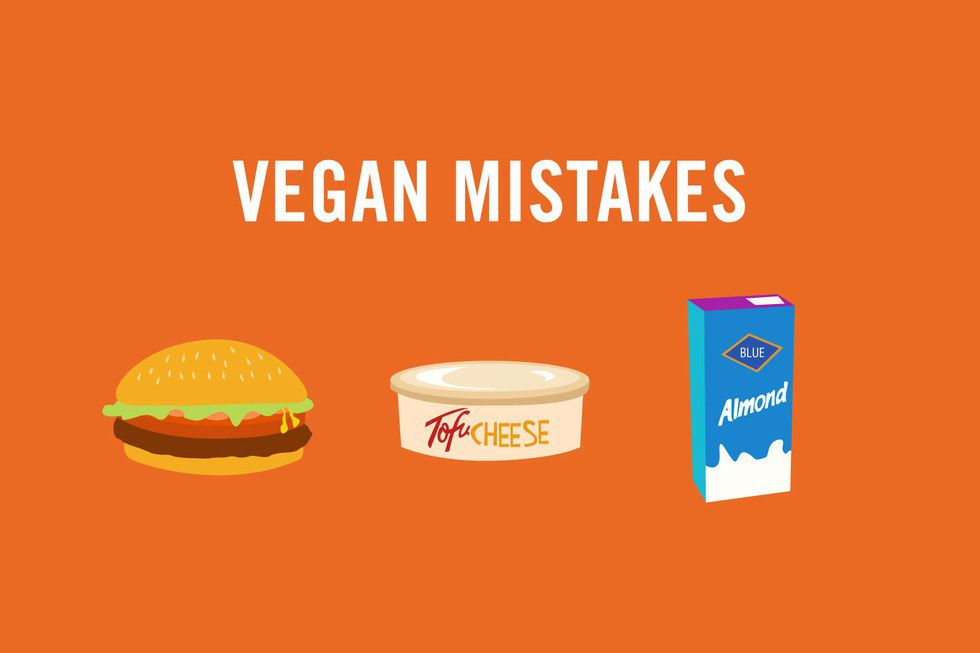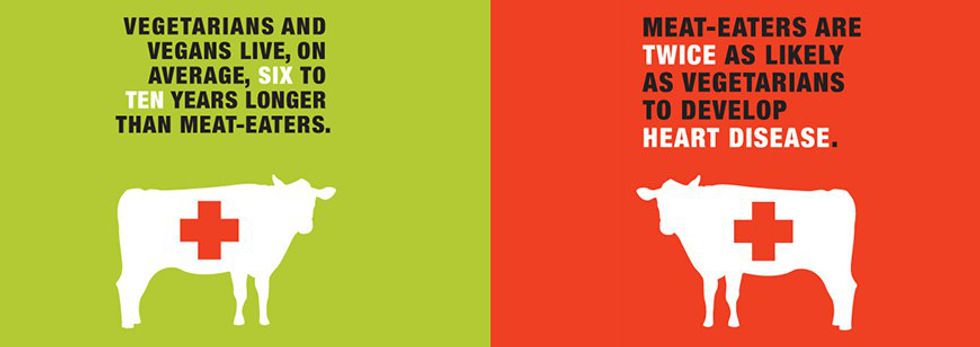Today marks my first full week eating a vegan diet. I’m sure many of you just rolled your eyes, and that’s fine. Others might have given me a mental “Good job!” or it’s possible that someone reading this just gained the courage to try eating vegan, too. Or maybe you have no idea what I’m talking about.
In its simplest definition, eating vegan means to consume only a plant-based diet—no meat, eggs or dairy products. Easy enough, right? Wrong. I am here to tell you that staying true to even this simplest version of a vegan diet is really, really tough, especially when you’re used to eating meat, eggs or dairy every day. No meat was the easy part (I already love my fruits and vegetables). But I found myself craving cheese and milk every single day. And my sweet tooth, usually satiated by something terribly bad for me anyway, was almost entirely abandoned as I realized that all my go-to's were made with milk and eggs (although I will say that Oreos are vegan and no one can stop me from eating my Oreos).
But I noticed as the week went on that it became easier and easier to avoid meat, eggs, and dairy. Instead of looking at the situation with a wow-I'm-never-going-to-eat-meat-again-in-my-life view, I simply told myself (repeatedly) that every snack and meal was an opportunity to make a conscious decision about my health, an animal's health and the environment's health.
If you haven't watched Forks Over Knives or read Eating Animals or How To Be Vegan and you're interested in adopting a vegan diet, you should check them out. The three discuss the health, moral and environmental benefits of eating a strictly plant-based diet. Each has got some incredible statistics and studies, like the fact that eating vegan can actually reverse health issues like diabetes and heart disease or the horrible finding that 50+ billion farmed animals are killed each year for food, excluding fish and other sea creatures that feed the human population. You'll be sure to find yourself wondering, "Why aren't I eating vegan?"
So, what does eating vegan actually mean? It means eating just fruits, vegetables and other whole-food, non-animal products. It means a healthier life with more energy and less sickness/medicine. It means that because you exclude animal products from your diet, nearly 200 farmed animals avoid slaughter or neglect. It means that at least a portion of the fossil fuels that are burned for the animal manufacturing industry (which contributes more to global warming than the world's transportation) are being saved and kept from polluting the environment.
There really isn't a reason not to eat vegan. Even if you make the rules up as you go (many people only eat vegan during the week, for instance), it's a way to give your body the healthier foods it desperately needs in our diets of mostly processed foods and a way to contribute something to the animals and environment we share this planet with. What are you waiting for?























